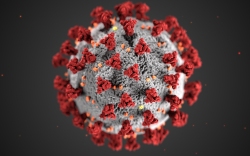
Local schools are closed due to the Wuhan virus. Is that a good idea, or a bad one? The lockdown is bad news if you’re a young, ordinary family with two working parents of school-age children. The shutdown is great news if that family also has grandma living with them. The results depend on your situation, but the decision was never made for your benefit.
The school shut down for a reason. Children are one of the least likely age groups to be seriously affected by the Wuhan virus, but that hardly matters. If Little Johnny is going to school every day and gets seriously sick, then the school will be sued for not shutting down. It is cheaper for the bureaucrats to send Little Johnny home than pay legal bills. It is much more expensive for you to be off work, but the school bureaucrats don’t have to pay for that. You pay because the school year is longer, and you also pay because you have to juggle work hours and parenting hours more tightly.
We see different incentives when a manager isolates an old folks home. People with a compromised immune system or lung disease are at serious risk of prolonged illness or death from the virus. Isolating those patients today means that fewer of them will be infected tomorrow. The staff at the old folks home won’t be overtaxed so they can provide adequate care. That saves lives.
The mayor shut down the hotels and casinos in his city for a different reason. Isolation blunts the rate of infection. Isolation buys us time to develop vaccines and for more people in good health to develop immunity to the virus through the slow process of infection and recovery. Isolation spreads the illness through time so hospitals are not overwhelmed by patients in acute respiratory collapse. The mayor really wants to avoid that at all costs.
Once the hospital runs out of treatment beds, then the local hospital will start selecting which patients to treat and which patients to simply monitor as the illness runs its course. Lots of voters will be angry at the hospital and at the mayor if grandma dies because there wasn’t a bed for her. Grandma might die of the virus anyway, but the mayor won’t be blamed as long as the hospital had a room and grandma was fully treated. The mayor wants to avoid the pages of bad press that results if the hospital starts triaging patients. The mayor can put you out of work by shutting down your job, but that choice probably won’t cost him the next election.
Families, bureaucrats, and politicians face different incentives. Their incentives have little to do with the seriousness of the particular public health risks we face. When faced with a complex situation, politicians often make self-serving decisions due to the incentives they face. They wrap their selfish decision in the cloak of the public good.
This virus also exposes some of the organizational weaknesses in our healthcare system. We pay for empty hospital beds and for unused supplies with higher medical bills. We dislike the higher costs, but we really like the extra capacity and capability during an epidemic. We get what we pay for.. sometimes.
We would usually share resources between hospitals and between communities, but in the case of the Wuhan virus, many facilities are husbanding their supplies since they don’t know how hard they will be hit. In contrast, it is common to loan people and equipment after a fire, but we like to wait for the smoke to clear. We want to see if our local community is out of danger. With the Wuhan virus, that takes time, and hospitals don’t know if they have resources to spare.
If you want to help your community, then see if the local blood bank needs donations. In the meantime, wash your hands.

